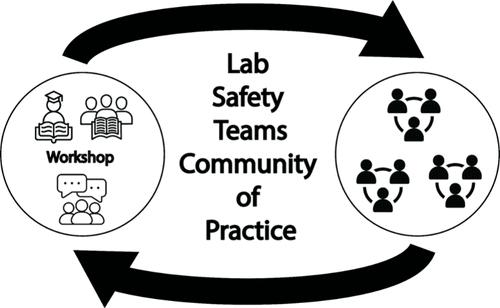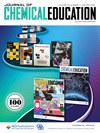实验室安全小组是一个不断发展的实践社区:探索如何和为什么
IF 2.5
3区 教育学
Q2 CHEMISTRY, MULTIDISCIPLINARY
引用次数: 0
摘要
有关实验室损坏、人身伤害和死亡的报道引发了人们对学术安全文化和化学科学研究人员安全教育的日益关注。学术机构内由学生领导的实验室安全团队(LST)是一种新的、不断扩大的非正式、自下而上的方法,用于改善学术安全文化和学生研究人员的安全教育。自 2018 年以来,美国化学学会化学健康与安全分会举办了一个研讨会,以支持化学科学专业的研究生建立和发展自己的 LST。在此,我们将研究不同学术机构内的 LST 如何通过这些研讨会发展成为一个实践社区(CoP),以及成员参与发展这一实践社区的原因。我们通过对 2018 年至 2022 年期间开展的 14 个工作坊的人工制品进行评估、对开展工作坊的学生研究人员进行半结构化访谈,以及对工作坊的三位主要学生领导进行有指导的焦点小组访谈,来确定 LST CoP 目前所处的阶段,以及成员们创造和体验了哪些价值。我们正在与化学教育界分享这一分析,以便为其他人提供洞察力,帮助他们了解改进化学科学研究人员安全教育的实验方法。本文章由计算机程序翻译,如有差异,请以英文原文为准。

Laboratory Safety Teams as an Evolving Community of Practice: Exploring the How and Why
Reports of laboratory damage, personal injury, and death have triggered increasing concern over the academic safety culture and the safety education of those pursuing studies in the chemical sciences. Student-led laboratory safety teams (LSTs) within academic institutions serve as a new and expanding informal, bottom-up approach to improving the academic safety culture and safety education of student researchers. Since 2018, a workshop has been run by the American Chemical Society Division of Chemical Health and Safety to support graduate students in the chemical sciences in establishing and growing LSTs of their own. Here, we examine how LSTs within the different academic institutions have evolved into a community of practice (CoP) through these workshops and why the members have engaged in growing this CoP. We determine the current stage of the LST CoP and what values the members created and experienced through the evaluation of artifacts from 14 workshops conducted from 2018 to 2022, semistructured interviews with student researchers running the workshops, and a guided focus group interview with the three primary student leaders of the workshops. We are sharing this analysis with the chemical education community to provide others with insights into experimental ways to improve the safety education of those pursuing studies in the chemical sciences.
求助全文
通过发布文献求助,成功后即可免费获取论文全文。
去求助
来源期刊

Journal of Chemical Education
化学-化学综合
CiteScore
5.60
自引率
50.00%
发文量
465
审稿时长
6.5 months
期刊介绍:
The Journal of Chemical Education is the official journal of the Division of Chemical Education of the American Chemical Society, co-published with the American Chemical Society Publications Division. Launched in 1924, the Journal of Chemical Education is the world’s premier chemical education journal. The Journal publishes peer-reviewed articles and related information as a resource to those in the field of chemical education and to those institutions that serve them. JCE typically addresses chemical content, activities, laboratory experiments, instructional methods, and pedagogies. The Journal serves as a means of communication among people across the world who are interested in the teaching and learning of chemistry. This includes instructors of chemistry from middle school through graduate school, professional staff who support these teaching activities, as well as some scientists in commerce, industry, and government.
 求助内容:
求助内容: 应助结果提醒方式:
应助结果提醒方式:


